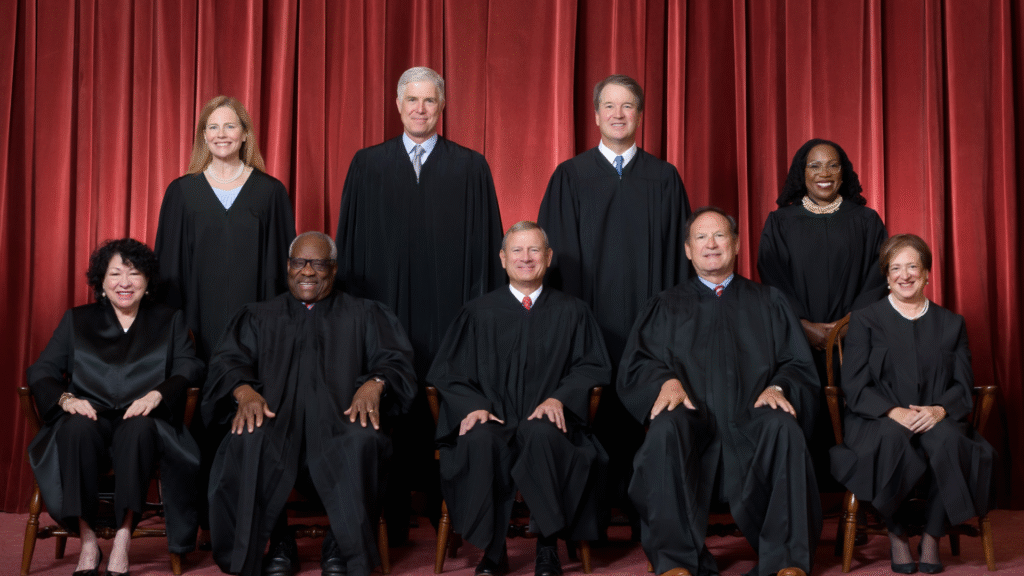
The U.S. Supreme Court on Monday sided with the Trump administration in allowing the termination of Temporary Protected Status (TPS) from deportation for nearly 350,000 Venezuelans living in the United States.
The court granted a request from the Justice Department to lift a previous ruling by U.S. District Judge Edward Chen in San Francisco, which had temporarily blocked the decision by Homeland Security Secretary Kristi Noem to end TPS for Venezuelans.
TPS is a humanitarian program that grants work permits and protection from deportation to individuals from countries deemed unsafe due to war, natural disaster, or crisis.
The Supreme Court’s order was unsigned, as is common in emergency cases. Justice Ketanji Brown Jackson was the only justice to publicly dissent.
The legal challenge to the policy change was brought by Venezuelan TPS recipients and the National TPS Alliance. They argued that returning to Venezuela would be unsafe due to the country’s ongoing political and economic instability.
TPS for Venezuelans was initially granted under President Joe Biden in 2021 and extended in 2023. Just days before Biden left office in January, his administration announced the program would be extended until 2026.
After taking office, Trump’s administration reversed that decision, with Secretary Noem rescinding the 2023 extension. Homeland Security estimates that 348,202 Venezuelans were registered under that TPS designation.
Judge Chen previously ruled that the administration had violated federal administrative law and suggested the decision to revoke TPS was based on harmful stereotypes. He noted that Venezuelan TPS holders were statistically less likely to commit crimes than the general U.S. population and were more likely to hold college degrees than native-born Americans.
The 9th U.S. Circuit Court of Appeals declined to pause Chen’s ruling on April 18, prompting the Justice Department to appeal to the Supreme Court. Government lawyers argued that the lower court had overstepped its authority and undermined the discretion of the executive branch, which Congress has traditionally empowered to make flexible and rapid immigration decisions.
In response, plaintiffs warned the Supreme Court that reversing the lower court ruling would strip work authorization from hundreds of thousands of individuals, expose them to deportation to a dangerous country, and cause significant economic disruption.
The U.S. State Department currently advises against travel to Venezuela, citing risks such as wrongful detention, terrorism, civil unrest, and poor health infrastructure.
The Trump administration has also recently moved to end TPS for other groups, including thousands of Afghans and Cameroonians, though those decisions are not directly tied to this case.

